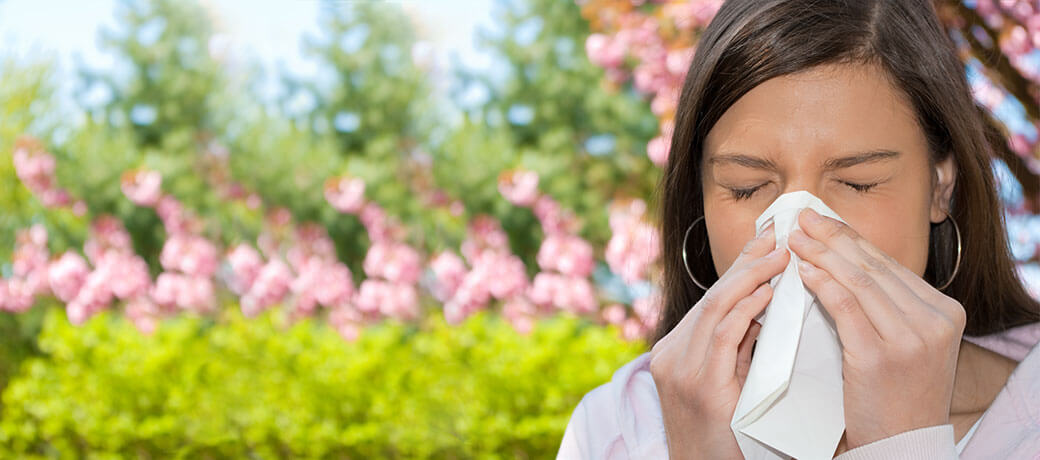Flu season usually runs from late October with a high occurrence rate through February. Hopefully, you all had your flu shots last fall and will continue to do so every October. Now that winter is over, spring season brings us less colds and flu. We have warmer, sunny, breezier days and lots of seasonal allergies.
The American Academy of Allergy, Asthma and Immunology state that approximately 50 million Americans have some form of allergies.
Type 1 diabetes is a disorder of the autoimmune system and so are allergies. That does not mean that you are more at risk for either condition if you have one but many people with diabetes type 1 or type 2 suffer from allergies.
What is an allergy?
It is considered an immune response to an allergen. An allergen to some people can be a prescription medication like penicillin or sulfa, a food like eggs, shellfish, wheat, soy, corn, or nuts, dust mites, dander from animals, dyes from cosmetics, soaps, detergents, or dryer sheets. Allergies can come from bee or wasp bug bites. We can even exhibit allergy symptoms from exercise or cold weather.
The body responds to the allergen by releasing antibodies to fight them off. It then releases histamines into the blood stream and that is when symptoms are triggered. It can be a local or systemic response.
Many people with diabetes can be allergic to older and less used insulins made from animals like pork or beef insulin. Today, most insulin is either human or analog so this allergy is rare. People with diabetes can also be allergic to latex which is often used in syringes or even in the top of an insulin vial coated with rubber. Basal insulin or long acting insulin can contain buffers like zinc which can cause allergy symptoms in people with diabetes.
What are seasonal allergies?
This is most often seen in the spring time and it is due to an increase of pollen. Pollen is a fine white, yellow or green powdery substance that comes from trees, hay, grass or weeds. Flowering plants do not have much pollen. Pollen travels through the air on windy days to fertilize other plants but also causes many people much discomfort and multiple symptoms. Rainy days wash away the pollen and pollen counts are lower on wet days.
What are some allergy symptoms?
Symptoms from allergies are usually sneezing, sinusitis, dry scratchy throat, and itchy red eyes, swelling of the hands, face, tongue or lips. Things like wheezing, tightness in the chest, rashes, difficulty breathing, bloating, vomiting, and stomach cramps can also be a symptom of an allergy. A systemic allergic reaction is called anaphylaxis and can result in shock, coma, or death. People with severe allergies should always be prepared with an Epi-pen and consult their doctor.
What are various treatments for allergies?
Depending on the allergy and extent of the symptoms, you and your physician can come up with a good treatment plan. Allergies that are severe may require skin testing or testing which places the allergen under the skin. The physician will mark and read the reaction to the allergen which can be red, swollen or create hives. It is usually done on the back or forearm. Allergy shots may follow this form of testing if the reaction is severe. Chinese medicine like acupuncture is mentioned in the literature as a possible remedy. Always check with your physician for your options. Finally, seasonal allergies can almost always be treated with over the counter remedies or prescription medications. Things like decongestants, anti-histamines, eye drops and nasal sprays can help. Using a Neti-pot with saline solution relieves nasal symptoms. Try using Diabetic Tussin Menthol cough drops with eucalyptus for soothing a scratchy throat. They contain no sugar and help give you relief. Nasal passages can swell and cause pain and stuffiness. Nasal Ease Allergy Reliever can help reduce those symptoms in a natural way. Allergies usually do not produce much mucus but if you find that you have developed some, try Diabetic Tussin Mucus Relief Caplets that lessen congestion, thin out mucus and do it in a diabetic friendly way. Remember to enjoy the season and the flowers without spending the day itching and sneezing!
NOTE: Consult your doctor first to make sure my recommendations fit your special health needs.













Leave A Comment